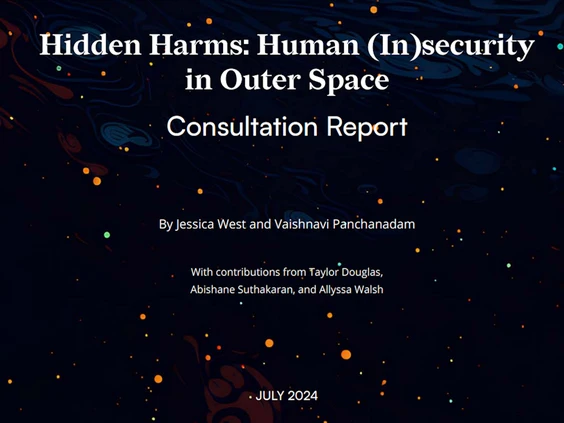At its core, liberalism can be defined in gnostic terms as the human mind’s idolizing of itself. In this sense, Obama’s famous aphorism is spot on. The liberal mind really is what the liberal mind has been waiting for.
What it seeks is not, however, goodness, or security, or higher living standards, or even better health care. What it seeks is the celebration of its own brilliance. “Smug” is a small word that perfectly captures the nature of the progressive mind.
This gnostic trait is the source of all of the damage liberalism has wrought for more than 300 years. From the French Revolution to the Third Reich, from Stalinism to North Korea, liberalism has brought with it repression of liberty, death camps, and executions on a mass scale. What’s often not well understood is the fact that violence and repression are inevitable because liberalism seeks to change what does not wish to change – and it does so not for the purpose of making things better, but as an attempt to confirm the superiority of the liberal mind and its ability to manage society.
Most Americans find this conception of existence repulsive. They follow the true path of love, marriage, childbirth, hard work, and faith in God and country. Liberals actively seek to destroy this conception of existence because it rejects their mission of transforming society. It’s either the true path or liberalism. Both cannot be true.
To succeed, liberalism must acquire and retain clients in need of change. It is not in the interest of the liberal to solve problems. What the liberal needs is continually to discover new problems and hold them up as in need of solution. The fate of the “DREAMers”, held in limbo by generations of liberals, is one example. The “downtrodden”, as they were once called, are indeed the pawns of liberal politicians.
Jeffrey Folks, “Leftists versus the People”, American Thinker, 2018-02-24.
September 21, 2024
September 20, 2024
How Popular Was Hitler?
World War Two
Published 19 Sep 2024In the summer of 1940, Hitler was at the peak of his popularity as he conquered Germany’s enemies seemingly at will. But just how quickly did this approval decline as the war turned further and further against Germany? What did the Germans think of him by the end of the war? Is there any love left for Hitler in postwar Germany? Today Spartacus answers these questions.
(more…)
The Me163 Komet – Rockets Are Dangerous
HardThrasher
Published Jun 3, 2024The story of the Me163 is a complex and multifaceted one, and I have attempted here to draw together a number of different sources into a narrative covering the political, structural, scientific and operational history. Necessarily I will have missed things and probably got things wrong. Where I know a mistake has been made, you’ll find it in the pinned comment marked “snagging” – one obvious example is Winkle Brown flew a “sharp” start after the war ended on an Me163 in Germany, and a towed flight in the UK, which I missed.
The below then is an extremely limited subset of the resources I’ve pulled on:
Me163 Rocket Interceptor – Stephen Ransom and Hans-Herman Cammann – not for the faint of heart, a book with brilliant nuggets, a drunken editor and a lot of very pretty pictures. This was my primary source.
Rocket Fighter – Marno Ziggler – Now out of print, this is a Hitler Jugend‘s Own Adventure story most of which has some truth in it but a lot of which is Marno wishing to be in his early 20s and flying for the Führer again. You can find it online fairly easily.
The kids probably haven’t got a clue what a video tape is, never mind Betamax https://legacybox.com/blogs/analog/vh… – Betamax vs VHS
Baxter, AD: Walter Rocket Motors for Aircraft, RAE Technote Aero 1668, September 1945 – a Technical note that’s incredibly hard to get hold of, but which I managed to find, quite by chance, in some papers I got years ago. Probably available from the UK National Archives still.
http://www.walterwerke.co.uk/walter/i… – a fantastic archive of all things Walter but it isn’t an https site as a warning.
https://hushkit.net/2019/03/29/the-li… – The coal powered bomber rammer P.13
https://donhollway.com/me-163/ – Bat out of Hell – great website for images of the Me163 as imagined in the Artists’ fever dreams
WW2 Gun Camera: 8th Air Force VS Mess… – Gun Cam Footage of the Me163 and Me262s being shot at and down by various USAAF pilots.
https://airandspace.si.edu/collection… – Air and Space Museum have their usual, brilliant photos and terrible descriptions.
QotD: The Matrix, Harry Potter and “The One Pop Culture Thing”
Part of the appeal of Harry Potter must be that can somehow be intellectualized, though — at least, if the number of people incorporating it, in all apparent seriousness, into college classes can be believed. Here again, I’m not talking the English Department, which might have a legitimate reason — to study the narrative technique or whatever (for certain stretched-farther-than-Trigglypuff’s-sweatpants values of “legitimate”, anyway). I mean classes like “PHIL 101: Harry Potter and Philosophy”, which started showing up first in goofy California colleges, then all over the damn place, somewhere around 2002.
That certainly seems to be the appeal of The Matrix, and indeed The Matrix stopped being The One Pop Culture Thing very quickly, I hypothesize, because it made “intellectualizing” it too easy. The Matrix is pretty much just Jean Baudrillard: The Movie, and while that’s fun and even useful — Baudrillard did have a point, despite it all — it’s just too clever … by which I mean, The Matrix did too much of the heavy lifting, so that you don’t get too many Very Clever Persyn points for noting that we’re all, just, like, simulations in other people’s minds, dude. Descartes can go fuck himself; Keanu Reeves has solved the mind-body problem with kung fu.
Also, Baudrillard-lite is everywhere now. We’re all Postmodernists, in the same way we’re all Marxists, so even the kids who slept through most of their one required Humanities course has at least vaguely heard of this stuff. A show like True Detective, on the other hand, hearkens back to much older philosophy — as tiresome as the wannabe-Foucaults were back in the late 1980s, as a culture we’ve pretty much forgotten about them, so the brooding wannabe existentialist douchebag seems new now. I just googled up “best true detective quotes”. Here’s a small sampling:
This is a world where nothing is solved. You know, someone once told me time is a flat circle. Everything we’ve ever done or will do, we’re gonna do over and over and over again.
Also:
… to realize that all your life, all your love, all your hate, all your memory, all your pain, it was all the same thing. It was all the same dream you had inside a locked room — a dream about being a person. And like a lot of dreams, there’s a monster at the end of it.
That “flat circle” thing is a direct quote from Schopenhauer, I’m pretty sure, and the idea of “eternal recurrence” came from Vedic philosophy via him to Nietzsche. Here, for instance, the Manly Mustache Man summarizes the plot of True Detective, season 1:
What, if some day or night a demon were to steal after you into your loneliest loneliness and say to you: “This life as you now live it and have lived it, you will have to live once more and innumerable times more; and there will be nothing new in it, but every pain and every joy and every thought and sigh and everything unutterably small or great in your life will have to return to you, all in the same succession and sequence — even this spider and this moonlight between the trees, and even this moment and I myself. The eternal hourglass of existence is turned upside down again and again, and you with it, speck of dust!”
Would you not throw yourself down and gnash your teeth and curse the demon who spoke thus? Or have you once experienced a tremendous moment when you would have answered him: “You are a god and never have I heard anything more divine.” If this thought gained possession of you, it would change you as you are or perhaps crush you. The question in each and every thing, “Do you desire this once more and innumerable times more?” would lie upon your actions as the greatest weight. Or how well disposed would you have to become to yourself and to life?
Here again, I don’t blame the average HBO viewer for having their minds blown by this (or at least pretending to), but people with PhDs should damn well know better. This is existentialism for dummies, but since they spent most of their off hours in grad school reading Harry Potter …
Severian, “The One Pop Culture Thing”, Rotten Chestnuts, 2021-09-16.
September 19, 2024
We’re approaching Halloween … expect the offensensitive inquisition!
Andrew Doyle with a timely reminder that Brits can — and have been — arrested, prosecuted, and (potentially) even imprisoned for wearing “offensive” Halloween costumes, and it’s likely to get worse:
The novelist Simon Raven once received a telegram from his wife which read: “Wife and baby starving send money soonest”. He replied: “Sorry no money suggest eat baby”. At the risk of sounding callous, I must admit that my first reaction on reading this was to laugh. It was involuntary, like the best of laughter. The reader should rest assured that this does not mean that I in any way approve of cannibalism and infanticide.
There is a brand of humour which relies on its sheer inappropriateness. It’s why we can find ourselves laughing during funerals or other solemn occasions. The social responsibility to take the matter seriously nags at our senses and dares us to rebel. John Cleese understood this all too well when he delivered the eulogy at Graham Chapman’s funeral and noted that his deceased friend would obviously have liked him to say: “Good riddance to him, the freeloading bastard. I hope he fries.”
The same principle applies, albeit in a cruder manner, to the convention of Halloween costumes that are intended to shock. It might seem puerile, but rather than donning the costume of a ghost or a vampire, many partygoers now celebrate this season of horror by dressing up as the most appalling human beings in history, such as Adolf Hitler, Myra Hindley, or Jedward.
The “gross out” is the whole point. The more outrageous the better, and the guest who displays the worst taste sometimes wins a prize. This is precisely what happened to David Wootton, who dressed as an Islamic terrorist, complete with Arabic headdress, and a t-shirt bearing the words “I love Ariana Grande”. To top it all, he carried a rucksack with “TNT” and “boom” written on it. This was in reference of course to the horrendous terrorist attack at an Ariana Grande concert at Manchester Arena in 2017 that killed twenty-two people, including many children, and injured a further thousand.
Bad taste? Offensive? Juvenile? I would agree with all of these assessments. But the partygoers understood the rules of the game, and Wootton later claimed to have been awarded the prize for Best Costume. Once his image was posted online, however, it became a police matter, and he was quickly arrested. He pleaded guilty and now faces up to two years in prison. He has also relocated and changed his name.
I have complete sympathy for anyone who found the images upsetting, grotesque, and not remotely funny. Nobody worth knowing would deny that the terrorist had committed an unforgivable crime. I find it particularly shocking that so many of us seemed to forget all about it with ease, as though we should accept that this kind of atrocity is simply an occasional aspect of living in modern Britain. Personally, I find this far more offensive than any tasteless Halloween costume.
German opinions are changing on the migration question
On of our key European commentators is back from a brief internet vacation and reports on recent changes in official German views on mass immigration:
There are other matters too, but before I can get to any of them, I must get this piece on the changing politics of mass migration in Germany off my chest. This is the most important issue facing Europe right now – more important than the folly of the energy transition, more crucial even than the fading memory of pandemic repression.
For nearly ten years, migration has felt like one of the most intractable problems in our entire political system. However crazy the policies, however contradictory and irrational, there was always only the towering mute wall of establishment indifference. It felt like the borders would be open forever, that we would have to sing vapid rainbow hymns to the virtues of diversity and inclusivity for the rest of our lives.
Suddenly, it no longer feels like that. Over the past weeks, a perfect storm of escalating migrant violence and electoral upsets in East Germany have changed the discourse utterly.
The cynical among you will say that none of this matters, that the migrants are still coming, that our borders are still open, and of course that’s true – as far as it goes. But it’s also true that there’s an order of operations here. A lot of things have to happen before we can turn return to a regime of normal border security, and I suspect they have to happen in a specific sequence: 1) Migrationist political parties have to feel electoral pressure and taste defeat at the ballot box first of all. 2) Then, as the establishment realises they are up against the limits of their ability to manipulate public opinion, the discourse around mass migration will have to shift, to deprive opposition parties of Alternative für Deutschland of their political advantage. Specifically, the lunatic oblivious press must begin to question the wisdom of allowing millions of unidentified foreigners to take up residence in our countries. This will then open the way for 3) the judiciary to revise their understanding of asylum policies and begin to interpret our laws in more rational, sustainable ways.
In Thüringen and Saxony, we have already had the electoral defeat of 1), and we will soon have more of it in Brandenburg. As a consequence of 1), we are now seeing some powerful glimmerings of 2). This is very important, because as the press expands the realm of acceptable discourse, a great many heretofore tabu thoughts and opinions are becoming irreversibly and indelibly conceivable.
Ten years ago, diversity was our strength, infinity refugees were our moral obligation and there were no limits to how many asylees we could absorb. Since August, not only Alternative für Deutschland but also that offshoot from the Left Party known as the Bündnis Sahra Wagenknecht, the centre-right Christian Democrats, a substantial centrist faction of the Social Democrats, and many others beyond whatever “the extreme right” is supposed to be, agree that migration is in fact an enormous problem. They also agree that our moral obligations to the world’s poor and disadvantaged are finite, and that there are indeed clear limits to the number of asylees Germany can support. What is more, they are saying all of these things in the open.
“This is the Law of Unintended Consequences in action”
Tom Knighton provides a wonderful example of “be careful what you wish for”, especially in the rich virtue-signal territory of the “green transformation”:

“Artisanal cobalt miners in the Democratic Republic of Congo” by The International Institute for Environment and Development is licensed under CC BY 2.5 .
… it seems our glorious green future now comes with more child labor!
A new report from the Department of Labor raises tough questions about whether and to what extent forced labor and child labor are intertwined with climate-friendly technology.
The department released a report this month finding that several minerals that are key components of electric vehicles and solar panels may be produced through these unethical labor practices.
The findings point to major ethical quandaries surrounding the ongoing energy transition. Climate change, if not addressed, endangers many of the world’s most vulnerable people. At the same time, the report raises serious human rights concerns about the technology being used to address it.
[…]
Whoops.Here’s the thing, cobalt and nickel are kind of important for this sort of thing, so we have to get them from somewhere and the one attempt to mine cobalt here in the United States fell flat. Why? The price of cobalt dropped. It was no longer profitable to try to mine it in the United States.
But in poor countries, it was still plenty viable.
Yet while we view child labor as unethical, we have to remember that our society is rich enough that we can afford to hold that belief. Now, I share it and I’d rather kids be kids, and worry about things like school, video games, television, and that sort of thing, but the truth is that when you’re barely able to feed yourself, you need every penny you can get.
That means kids going out to work.
That means doing some grueling, back-breaking, nasty work like mining stuff like cobalt.
It means paying for dirty, nasty strip mining so you can convince yourself and your friends that you’re better than those of us who still prefer a gasoline- or diesel-powered car.
All around us, we tend to be oblivious to the reality of the rest of the world. We simply think something should be so and then just act like they are. We ignore what all might be required to make that something so.
This is the Law of Unintended Consequences in action.
D-Day Tanks: Operation Overlord’s Strangest Tanks
The Tank Museum
Published Jun 7, 2024An opposed beach landing is the most difficult and dangerous military operation it is possible to undertake. Anticipating massive casualties in the Normandy Landings, the British Army devised a series of highly specialized tanks to solve some of the problems – Hobart’s Funnies.
Named after General Sir Percy Hobart, commander of their parent unit, 79th Armoured Division, the Funnies included a mine clearing tank – the Sherman Crab, a flamethrower – the Churchill Crocodile and the AVRE – Assault Vehicle Royal Engineers which could lay bridges and trackways, blow up fortifications and much else besides.
In this video, Chris Copson looks at surviving examples of the Funnies and assesses their effectiveness on D Day and after.
00:00 | Introduction
01:24 | Operation Overlord
03:02 | Lessons from the Dieppe Raid
05:31 | The Sherman DD
07:21 | Exercise Smash
14:38 | Sherman Crab
17:38 | The AVRE
19:47 | Churchill Crocodile
23:15 | Did the Funnies Work?
28:49 | ConclusionThis video features archive footage courtesy of British Pathé.
#tankmuseum #d-day #operationoverlord
QotD: “Solutions” to climate change
Everyone who isn’t an idiot knows the climate change hoax was never about “science”. That’s a hack lie they use to shut you up when you point out that the ice age, floods, and mass polar bear die-offs they are always promising never, ever seem to happen. It’s a deliberate scam that blends leftism, hysterical hyperbole, and outright fraud into a gooey pudding designed to fill the spiritual void in empty-souled western suckers while providing a tool for our global leftist establishment to steal more of our money and freedom.
Quick: name a climate change remedy that does not result in you being less free and/or paying more money. It’s actually remarkable. Every single thing that we absolutely must do right now no time to wait how dare you pause to think how dare you is something leftists always wanted but could never talk people into doing until the threat of weather vengeance started lurking around the corner.
You can’t name any. There aren’t any, because the weird climate cult is not about weather but about separating you from your liberty and loot. And, apparently, your life if you won’t obey.
Kurt Schlicter, “TIME’s Commie Nag of the Year Can Go Pound Sand”, Townhall.com, 2019-12-15.
September 18, 2024
Sexual objectification … is it okay when you do it to yourself?
On her Substack, Janice Fiamengo talks about the “Curious Case of the Self-Objectifying Feminist”:
Not long ago, a British campaign for affirmative consent legislation featured images of women paired with the slogan “I’m asking for it“. The whole point, of course, is that they’re not asking for “it”. The phrase is meant to evoke men who justify their sexual assaults of women by claiming that the victim wanted to be raped. What the women are asking for is legislation to make it a criminal offence for a man to have a sexual encounter with a woman without eliciting an explicit “Yes” from her at every stage (how far we have moved from the relatively simple “No means no”).
The most striking of the ads features the face of Charlotte Proudman, the well-known feminist barrister and zealous anti-male advocate who once denounced a fellow lawyer for complimenting her LinkedIn photo. In the picture, Proudman confronts the viewer with a sexy, smoldering look and a slight half-smile. Her face is carefully made up to accentuate her feminine sexuality, with dark-tinted eyelashes and gleaming red lips outlined in vivid lip gloss. In order to object to men’s sexualization of women, Proudman has sexualized herself.
We are told that the campaign was “deliberately bold and intentionally provocative”. It was designed to “stop viewers in their tracks“, so that we would think about how women are mistreated under the law. Male viewers whose minds stray to sex are, one can only assume, to be brought up short, ashamed and convicted of sin.
The double messaging is deliberate — but confusing. Most people looking at Charlotte Proudman’s sex-kitten face will not, in my opinion, contemplate misogynistic attitudes or the scourge of sexual violence. On the contrary, most viewers will be “stopped in their tracks” by the overtness of Proudman’s sensual self-display. It seems odd that an ad claiming that women should not be seen to invite sexual advances features a woman who seems to be inviting sexual advances.
Feminists have for decades claimed that such sexualization has been forced on women to their detriment. In the fashion industry, in movies, and in daily life, according to feminist philosophers like Sandra Lee Bartky, men compel women to advertise their sexuality as their primary power, to redden their lips, assume sexual poses and flatter the voracious male gaze, becoming “object and prey for the man“.
For centuries, we’re told, patriarchal societies denied women the opportunity to do anything with their lives but live out male sexual fantasies, whether as virgin or whore, Madonna or muse. A male-defined culture made the woman accentuate her youth, shave her legs, remain svelte, and present herself for visual consumption, “living her body as seen by another, an anonymous patriarchal Other“: a degrading spectacle from which all women would be better off free.
Yet here is a campaign designed by feminists to support alleged rape victims, with the same (objectionable) self-presentation by the ad’s primary subject, who is obviously not posing against her will and obviously has many choices about how to present herself. The only difference, it seems, is that in this case, the woman’s self-display is entirely of her own defiant volition.
One wouldn’t think that would be sufficient for a diehard feminist like Proudman, or for any equality-minded modern woman with a thousand choices about what to do with her life.
When I was a little girl in the early 1970s, I took it for granted that self-respecting women wanted to be appreciated for the qualities of their minds and characters. One of the first slogans I remember was the somewhat puzzling “Love me for my mind, not my body”. At the time, around six or seven years old, I thought it would be nice to be loved for any reason. Only later did I understand the implication: to be loved for one’s body was not truly to be loved at all, for the body was a superficial, mutable aspect of the self, destined to deteriorate with time. Moreover, according to the general feminist perspective, the body was all that sexist men cared about, especially the sexual parts. This was objectification, the reduction of the whole woman with all she had to offer (her kindness, her wit, her unique thoughts) to a thing. It was shameful and degrading.
The Korean War 013 – 70,000 UN Troops Head for Incheon – September 17, 1950
The Korean War by Indy Neidell
Published 17 Sep 2024[NR: For some unknown reason, YT decided to restrict the original release of this video, so I’m replacing it with the “Censored” version posted a couple of days later.]
This week sees the UN forces execute Operation Chromite, the amphibious invasion of the port of Incheon, far behind enemy lines. There are many hurdles to clear before this can happen, including the physical one of one of the world’s largest tidal ranges, which leaves many kilometers of mud flats in the approaches. There is also a UN counterattack at the same time, designed to perhaps break out of the Pusan Perimeter, or at least tie down big chunks of the enemy in the south.
(more…)
Canucks. In. Space – “racist, exploitative, elitist, and environmentally destructive”
In the National Post, Tristin Hopper‘s First Reading on a recently commissioned report for the Canadian Armed Forces on space exploration from an intersectional feminist viewpoint:
As Canada prepares to send an astronaut on the first manned moon mission in more than 50 years, its own military has commissioned a $32,250 report on how space exploration may actually be “racist, exploitative, elitist, and environmentally destructive”.
The 48-page report, entitled Hidden Harms: Human (In)security in Outer Space, concludes that human usage of space is currently “masculine, militarized and state-based”.
The authors also bemoan a space exploration field that is beholden to colonial concepts such as “technospeak” and “expertise”, and which doesn’t give appropriate weight to “spirituality, astrology, and cosmology, the last of which views celestial bodies in space as animated beings and not mere objects”.
As such, the report concludes that space will continue to be a realm of “hidden violence” against the world’s marginalized until “gender, race, class, ability, and sexuality” can be put at “the centre” of how decisions are made in the cosmos.
“Leadership is needed to normalize inclusion of different perspectives,” reads a conclusion.
The report has very little positive to say about the current state of human space exploration or space technology.
The whole endeavour is criticized as “technology-biased” because it fails to consider “gendered effects”. It’s “geography-biased”, because it doesn’t include equal participation from poorer countries.
It “normalize(s) violence and exploitation” by using language that depicts “outer space as a hostile and desolate environment that is unpeopled/inhuman and controlled so that it can provide an extractable resource”.
The construction of launch pads, satellite receivers and other ground infrastructure causes “disproportionate harm to Indigenous communities by severing their connection to ancestral lands”.
The report is also deeply critical of the fact that space is disproportionately inhabited by able-bodied males from wealthy countries. “Existing approaches are ahistorical and thus invisibilize diverse stakeholders and voices,” it reads.
Hidden Harms contains little to no discussion of the technical aspects of space exploration or technology. The word “rocket”, for instance, appears only once in a footnote in relation to how a falling rocket stage could hurt Inuit people. The word “orbit” appears in the text just once, when referencing how states could impose extraterrestrial harm by “permanently damaging objects on orbit”.
Nevertheless, the report is clear that all of these technical considerations should become secondary to “intersectional, decolonial, and humanitarian perspectives”.
“We must make space for the unfamiliar and the uncomfortable,” it reads.
It’s hardly surprising that an “intersectional feminist” view of space exploration would be harshly negative — what is surprising is that the Canadian Armed Forces paid to have this intellectual drivel written. A bit over $30k isn’t even a rounding error for the federal government, but as an indicator of just how federal bureaucrats are spending their departmental budgets it does seem to indicate that there’s a lot of fat in those budget numbers.
D-Day 80th Anniversary Special, Part 1: Paratroopers, with firearms expert Jonathan Ferguson
Royal Armouries
Published Jun 5, 2024This year marks the 80th anniversary of D-Day, the Allied invasion of France which took place on 6th June 1944. From landing on the beaches of Normandy, the Allies would push the Nazi war machine and breach Hitler’s Atlantic Wall.
To commemorate this, we’re collaborating with Imperial War Museums to release a special two-part episode as Jonathan will look at some of the weapons that influenced and shaped this historic moment in history.
Part 1 is all about the “tip of the spear”, the Paratroopers.
0:00 Intro
0:55 STEN MK V
1:40 History of the Sten
3:00 Mark V Details
6:23 Usage in D-Day
8:38 M1A1 Carbine
10:38 M1A1 Details
14:09 Usage in D-Day
15:01 ACME ‘Cricket’ Clicker
17:31 The Longest Day
19:30 Outro[NR: I’m glad Jonathan discussed that bloody clicker scene in The Longest Day … it bugged me the very first time I watched the movie as a young army cadet in the mid-1970s.]
(more…)









